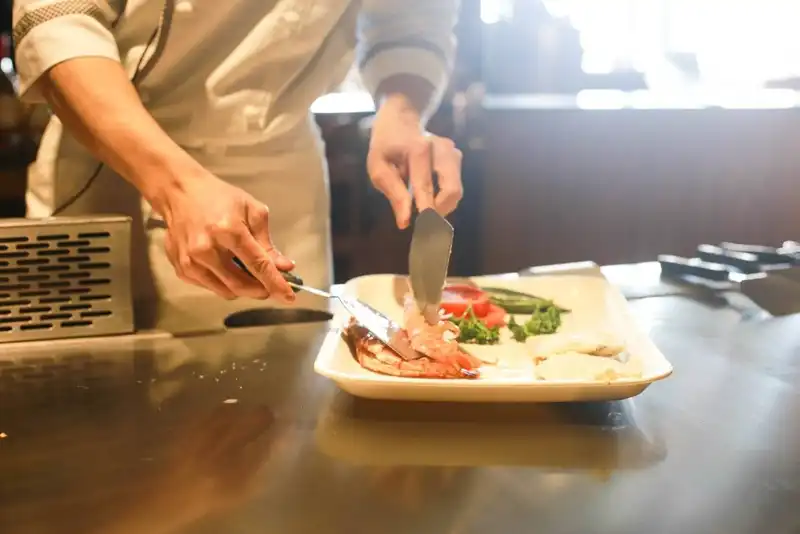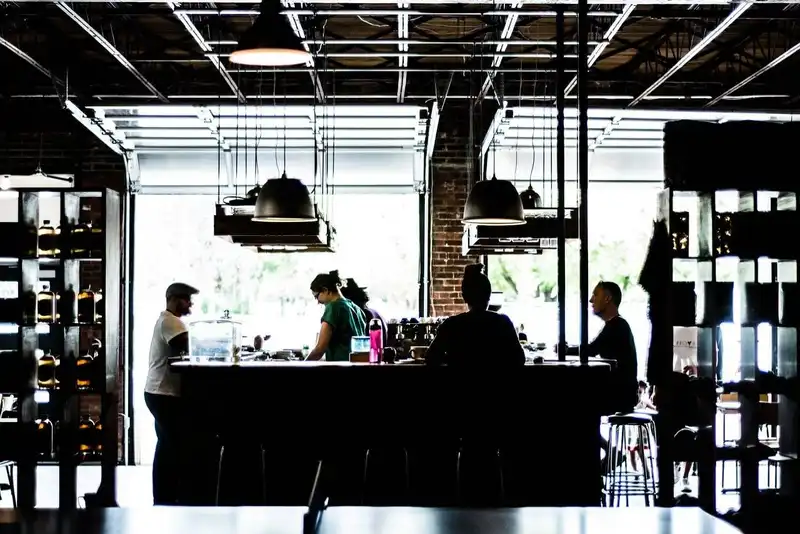What Restaurant Regulatory Compliance Entails

Regulatory Compliance and Its Importance

Regardless of the industry or the size of the company it pertains to, there are specific laws that must be followed to run legal operations. This includes the restaurant industry, where the regulatory compliance rules are very specific.
Regulatory compliance has guidelines set forth from the law that requires companies to follow them. An example would be adhering to the guidelines proposed by the Occupational Safety and Health Administration (OSHA) to maintain workplace safety. Another example is discrimination free hiring guidelines set forth by the Equal Employment Opportunity Commission (EEOC).
Compliance touches more than just sectors like financial services or healthcare. Regulatory compliance is important to every industry and its operations. Different industries will have their own sets of regulatory compliance guidelines. The standards for the food industry focus on product safety throughout the supply chain. Regulatory compliance is different from corporate compliance.
Some more examples of regulatory compliance regulations include the United States Health Insurance Portability and Accountability Act in 1996 (HIPAA), in 2002 the Sarbanes Oxley Act, and the General Data Protection Regulation of 2016 (GDPR) in the European Union.
Why Is Regulatory Compliance So Important?
The mass amount of regulations, standards and laws has changed so much over the years that regulatory guidelines grow increasingly important. Because the movement is constant within the regulatory environment, things are constantly changing.
Staying abreast of the regulatory compliance guidelines is important in an ever evolving landscape. Maintaining compliance will keep a restaurant from falling into a risk zone for fines and even closure.
How to Achieve Regulatory Compliance

To achieve regulatory compliance it takes a comprehensive approach to detail and accuracy. Some key ways to ensure regulations are being met include-
Identifying needed regulations
The guidelines for regulatory compliance within the restaurant industry are fluid, meaning they change often. Knowing the laws and standards for the jurisdiction will vary for federal and state. Within these compliance laws are also unique standards that need to be followed. The original laws and any amendments should be learned first.
Understand the requirements
Not all the requirements under a regulatory compliance will be necessary for every restaurant. Understanding which requirements need to be followed is an ongoing challenge. However, it's better to know that the restaurant is being compliant. Government issued Guidance Documents are a good place to start. These guidelines help spell out the applicable requirements and how they are implemented.
Monitor changes
Because the requirements are consistently in flux, staying on top of the changes is important. Thoroughly monitoring notifications from federal agencies, law firms, and industry associations is a full-time job. Having a compliance management team in place to handle such tasks keeps things from slipping through the cracks.
Document your compliance reviews
Keeping a record of compliance reviews just makes good sense. In some places it is also the law. If there is a compliance audit, any evidence of a review will be beneficial to easing the process. A good software system can track compliance reviews with ease.
How Restaurants Follow Regulatory Compliance

In order for a restaurant to achieve regulatory compliance there are specific laws that need to be followed. Everything from food safety to labor laws will have an impact on a whether a restaurant is a compliance risk or not.
Restaurant-Specific Labor Laws
There are many labor and employment laws that need to be followed within the restaurant industry. Some that are of particular importance to remain compliant regard child and teen labor laws.
Anyone under the age of 18 is considered a minor. While they are entitled to receive equal pay and protection rights that adult workers have, there are other federal employment provisions that must be followed. Minors will have restrictive work hours and there are certain tasks, such as serving alcohol, that they cannot do.
Nutrition Labeling and Food Safety Laws
The Food and Drug Administration (FDA) is responsible for overseeing all food safety regulations. This includes proper food labeling, preparation methods, food manufacturing and food distribution.
Local governments also administers regulations for hygiene standards and food safety. These standards can easily be found on government health websites. Working with a health inspector to get the restaurant up-to-code is often a first step for a restaurant owner and ongoing for restaurant managers.
Restaurant Taxes
Staying on top of all records is imperative for any business owner, especially in the restaurant industry. Profit and loss, employee wages and tips, and other financial identifiers are all necessary to have compiled for tax season. These forms can be found online at the IRS' Restaurants Tax Center.
3 Restaurant Regulatory Compliance Laws That Can't Be Ignored

Being a restaurant manager or owner comes with a great deal of responsibility. Understanding which regulations can have an impact on the restaurant is a must. Here's a breakdown of the top three compliance regulations that are essential for a restaurant.
1. OSHA Health and safety laws
The Occupational Safety and Health Administration (OSHA), is an agency within the United States Department of Labor built to protect employees health rights. Each state can vary on which safety standards from OSHA should be met.
Staying in compliance with OSHA regulations is a must. The operational protocols can include many different standards. Its best to check with the OSHA requirements in which state the business is being run to make sure compliance. OSHA provides helpful guidelines for owners, managers, and franchisees in the food service industry.
Health codes are also a big part of health and safety laws. The Food and Drug Administration (FDA) has set forth very specific regulations that restaurants must follow. Health inspections can happen randomly and if a restaurant is not up-to-code it can mean fines or closure.
2. Wages and Overtime
The federal Fair Labor Standards Act (FLSA) have regulations on how employees who receive tips are impacted. The tips, hours worked and other payroll issues must all be accounted for in a meticulous manner. These extra payroll regulations are another area that is a must for restaurant regulatory compliance.
Overtime regulations may vary as far as coverage goes. According to the FLSA, any non-exempt employee who works over 40 hours per week must be compensated. There are some states that regulate daily hours as well. If an employee works over a scheduled 8 hour shift, they will earn overtime.
3. Payroll tax laws
Food service managers must follow tip reporting codes to the letter. A FICA Tip Tax Credit can be earned when the tips are reported accurately. Additional tip reporting might be required according to federal regulations. It will depend on sales volume, the percentage from tipped sales, and how tips are distributed.
Paying restaurant staff can be tricky when it comes to compliancy laws and regulations. Advanced knowledge and planning, along with the use of specialized restaurant software, can take the guess work out of it.
Best Practices to Avoid Infractions

Staying compliant with the food and labor laws will keep the restaurant from enduring penalties and fines that could do lasting damage. Here are a few tips to avoid any compliance issues.
Food Handling and Food Safety
A health inspection is done by a third party every few months to make sure the restaurant is up-to-code. The codes are put in place to limit the risk of foodborne illnesses developing. A well-run restaurant operation lessens the chance of violating a health code but this is where a lot of restaurant managers fail.
Keeping a comprehensive and itemized logbook will help to make sure employees are following all the food safety and HACCP guidelines. Proper cleanliness, food storage, and cooking temperatures are all part of the procedure.
Employee and Customer Injuries
Slips and falls, cuts, and other injuries can be common in the workplace. If a customer is injured within the parameters of the restaurant there can be a lawsuit filed. This can cost the restaurant a great deal in expenses. The same goes for employee injury.
The first thing is to limit the possibility for injury by maintaining proper procedure and safe workspaces. But if an accident does occur, a thorough record of the incident must be documented to protect the business from further liability.
Underage Drinking
Teenagers and minors often try to get away with purchasing alcoholic drinks. It's up to the restaurant to have guidelines in place that deter this type of behavior. If a bartender or wait staff serve alcohol to an underage drinker, the fines can be tremendous. Repeat infractions can cause an establishment to lose its liquor license. The same goes for serving an intoxicated patron. Knowing when to cut someone off is imperative for the same reasons underage drinking is.
Employee Compliance Regulations to Follow

Every restaurant will have a different policy pertaining to employee regulations. It's important that these guidelines are clear to each and every team member. Some of the employee regulations that are consistent in the restaurant industry include the following-
Appearance and Hygiene
No one wants their food to be served by someone who doesn't look clean. It is also a matter of following health code standards for certain matters. For instance, anyone handling the preparation of food should have their hair pulled back under a hat or hair net. Any jewelry other than a wedding band is often not allowed either as it can, and has, fallen into the food causing a health violation. A cleanly appearance is a must for all restaurant employees.
Manners and Communications Skills
There's a certain etiquette required for those in the service industry. Depending on the type of restaurant, that level of etiquette goes up. Patrons are spending their money in the establishment and as such, expect a certain level of service.
Staff should be courteous at all times. If there is an issue with the service, it should still be handled with decorum.
Timely Performance and Time Off
Restaurants are busy by nature. Employees should arrive for their shifts in a timely manner so it doesn't interrupt the flow of the workday. If time off needs to be taken, it should be established far enough in advance that the restaurant can cover the shift with another employee.
These are a few examples of restaurant protocols that are often required by employers for employee compliance.
Why Having Compliance Programs is Important

The food service industry employs roughly 14.7 million people in the United States each year. Data indicates that 6 in 10 adults will have worked at a restaurant or food service position at one time in their lives.
Because there are so many different aspects of the restaurant industry, having regulatory guidelines in place helps each establishment reach its best ability. This goes for the entire staff, the managers, and the owners.
Having a compliance program set forth for employees will keep a business running with less risk of incurring an infraction. The regulations for restaurants are complex and should be followed meticulously.
As business matters shift, and laws change, its important to notify everyone on the payroll of these necessary matters. Having a program readily available where everything is in writing lessens the risk of lapsed judgement at an inopportune moment. It makes good business sense to have a compliance program in place.
Restaurant Regulatory Compliance Wrap-up
- Regulatory compliance is the act of following the requirements for restaurants set up at state, federal, or international levels.
- The guidelines for regulatory compliance often come from the Occupational Safety and Health Administration (OSHA) or the Equal Employment Opportunity Commission (EEOC).
- Regulatory compliance requires an approach that is comprehensive and accurate to meet all the requirements.
- Maintaining compliance keeps a restaurant from getting an infraction strike.